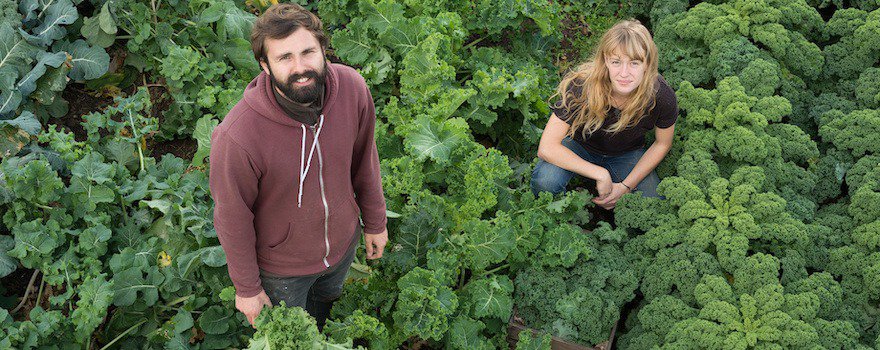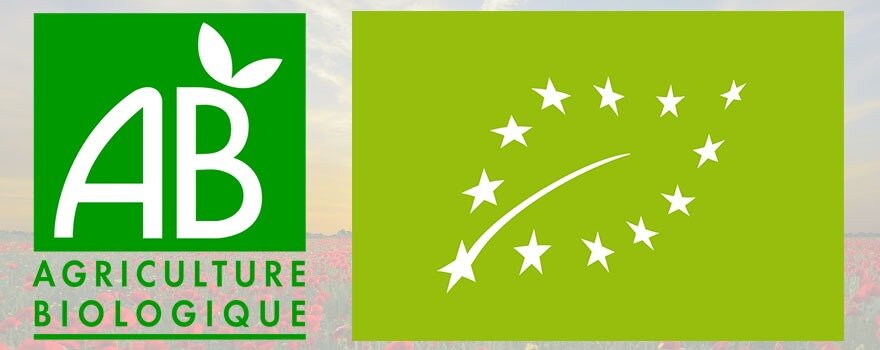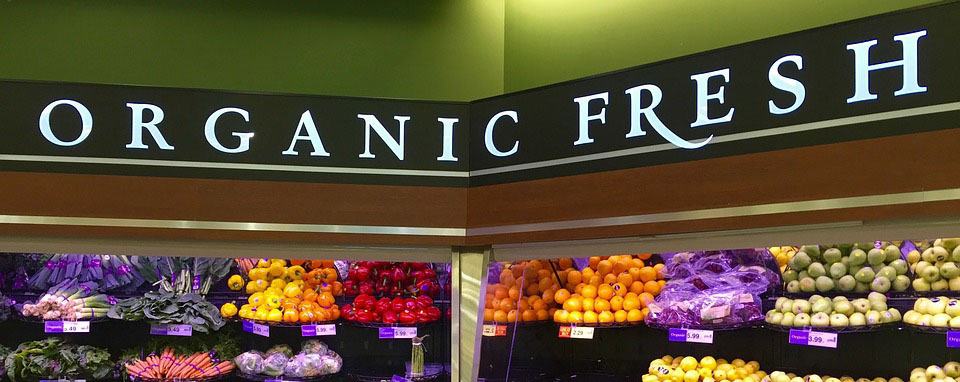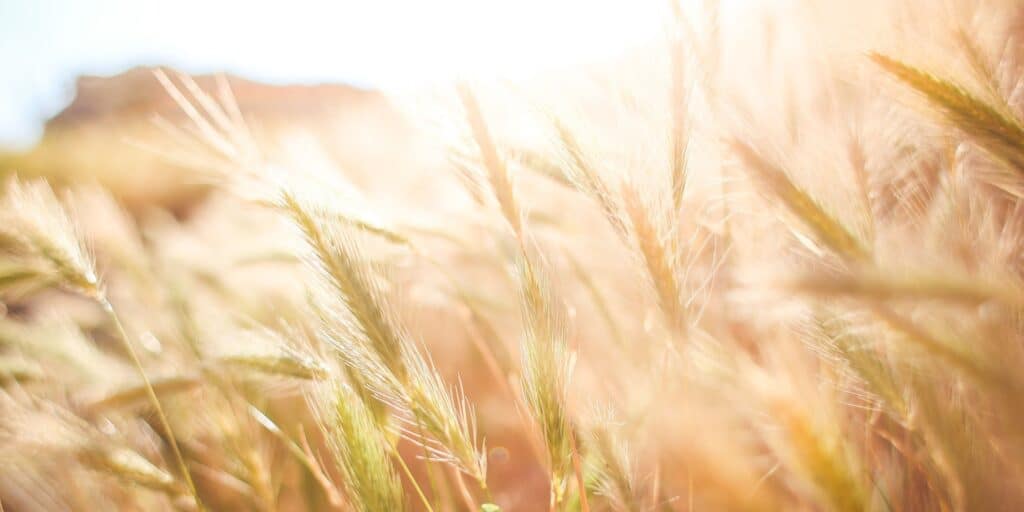A Brief History of Organic
What is Organic Farming?

Organic farming is a method of production rejecting GMOs as well as the use of synthetic products derived from chemical transformations.
Organic farming respects the natural balances in its cultivation and livestock practices.
Compared to ‘rational’ or ‘integrated’ farming, organic production must adhere to a strict set of guidelines regarding the use of synthetic chemicals, livestock conditions, processing conditions, and livestock health practices.
Another feature of organic farming is the recognition of the AB label, which guarantees adherence to a specific set of guidelines. This ensures an ethical mode of production that respects biodiversity, conserves natural resources, and limits the use of polluting products.
To summarize, organic farming involves:
- Ethical and responsible agriculture
- Controlled use of chemicals
- A label guaranteeing adherence to a set of guidelines
The Birth of Organic Farming
In 60 years, the topic of organic farming has become a central issue in our societies. The introduction of organic products into our diets results from a multitude of initiatives by doctors, farmers, and consumers.
It all began in the 1920s when Austrian philosopher Rudolf Steiner questioned modern agricultural methods. This led to the birth of the ‘biodynamic’ movement.
Biodynamics is a cultivation method that respects the biological requirements of the soil.
Starting in the 1970s, the first private sets of guidelines appeared defining organic farming practices.
In 1980, public authorities recognized the existence of ‘agriculture without chemical products or synthetic pesticides’, and in 1985, this alternative farming was officially named ‘organic agriculture’.
This new nomenclature then enabled the national development of guidelines, the AB logo, and new labels.
Organic Farming in France in 2019
The BIO Agency / Spirit Insight conducted a study on the consumption and perception of organic products in France in February 2019:
- 1 in 2 French people buy organic cosmetics and hygiene products
- 60% buy organic household cleaning products
- Generation Z (young people born after 1995) is more committed to organic products for ethical, social, and animal welfare reasons
- 6 out of 10 French people have little confidence in the information provided about organic products
- In 2018, more than half of the French population reported changing their dietary and culinary habits.
The study finally notes that environmental concerns play a significant role in these consumption changes.
Organic seems to be a good way to combine the individual demand for well-being and the collective desire to protect the planet.
Organic Labels
Between 1980 and 2000, organic labels proliferated in France and across Europe. There are nearly thirty organizations certifying organic products.

European Organic Label
Since 2010, this logo is mandatory on all organic products sold in Europe. It standardizes production conditions and must be accompanied by the indication of the production location of the agricultural raw materials of the product.
The commitments of this label are:
- No pesticides or chemical treatments after harvest
- Pesticide-free feed for livestock
- Prohibition of GMOs (though traces of accidental contamination may be allowed)
- Limited use of veterinary treatments and medicines
- Minimum space and outdoor access for animals
This label has been criticized for allowing operators to produce both organic and non-organic on the same land.
AB Label
Created in 1985, the AB label is aligned with the European organic label. Thus, there is a prohibition on synthetic chemical pesticides and fertilizers, and a conditional tolerance for using products of natural origin.
Organic and Beyond…
Controversial Products
The magazine 60 Millions de Consommateurs conducted a study on the composition of 130 organic products such as fruits, yogurts, fruit juices, and meats and fish.
The results indicate the presence of carcinogenic substances classified as endocrine disruptors.
These results are explained particularly by the fact that in organic farming, livestock living outdoors may come into contact with contaminated soils. As for fruits and vegetables, they may be grown near contaminated soils or polluting sources, which calls into question the 100% organic aspect of the product.
Finally, organic farming does not ensure that the products are 100% local and seasonal. Indeed, many products can be imported and have quite a high carbon footprint, especially for exotic goods.
An incomplete labeling

“Organic is first and foremost an obligation of means, not results.”
This is what Stéphanie Pageot, president of the national federation of organic agriculture, reminds us about the European label.
This means it does not guarantee that a product is free of pesticides but rather that the producer is implementing the necessary conditions to cultivate without GMOs, pesticides or chemical fertilizers. Many organic producers no longer identify with the requirements of this label today.
Greenpeace, for example, considers the AB and European organic labels too lenient towards GMOs. In response, other labels like “Bio Cohérence,” “Bio Partenaires,” and “Nature & Progrès” have emerged.
The latter aim to prohibit the mixing of conventional and organic productions in certain farms.
The specifications of Bio Cohérence require that organic products be grown, produced, and processed on French soil. There is also a very thorough control of animal welfare.
Bio Partenaire, on the other hand, takes the principles of AB and European organic labels, enriching them with the values of fair trade, ensuring a fairer income for its producers. Their goal is to promote the sustainability of organic actors and support local production.



